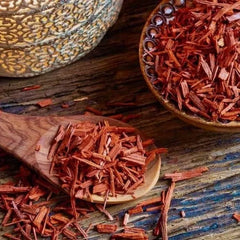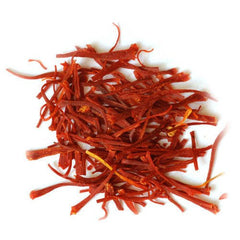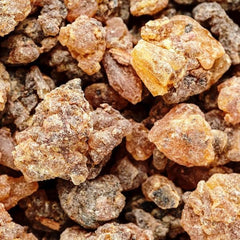What Does Amber Smell Like?
Click For Affordable Inspired Perfume Alternatives

Join us on a fragrant expedition to discover the alluring and timeless scent of amber. An aromatic treasure with a rich history, amber unfolds its warm and resinous aroma, captivating the senses with its depth and complexity. Let's delve into the question: What does amber smell like?
Amber's fragrance is a timeless symphony of earthy warmth, sweet resin, woody embrace, and smoky allure. It stands as a testament to the sophisticated and comforting qualities of this precious resin, inviting us to experience the richness of its scent in every aromatic encounter. Amber, with its warm and complex aroma, beckons us to embrace the timeless allure of nature's resinous treasure.
Amber's Resinous Elegance
Enter the enchanting world of amber, where the fragrance is a symphony of resinous elegance. Picture a warm and inviting aroma, reminiscent of ancient forests, with a touch of earthy sweetness. Amber's scent is a celebration of warmth and sophistication, offering a comforting olfactory experience.
As you approach amber, the first olfactory impression is a grounding earthiness, akin to the warm hues of a sunset in a dense forest. Imagine the scent of rich, aged woods, combined with the subtle sweetness of resin. Amber's fragrance is a testament to the comforting embrace of nature, instantly transporting you to a serene woodland with its earthy and warm character.
The scent of amber is a delightful dance of sweet resin notes. It captures the essence of nature's nectar, offering a warm and honeyed sweetness that is both soothing and inviting. The aroma is a tribute to the resinous treasures hidden within amber, creating a luxurious and comforting olfactory experience reminiscent of golden droplets.
While predominantly resinous, there's a subtle woody embrace in amber's scent. This woody undertone adds depth to the fragrance, evoking images of ancient forests and the wisdom encapsulated within their timeless boughs. Amber's aroma is a harmonious blend of sweet resin and woody warmth, creating a captivating and well-balanced composition.
Delve deeper into the scent, and you may notice a smoky allure that characterizes amber's fragrance. It's as if the aroma carries the mystical charms of ancient rituals, adding a touch of intrigue and sophistication. The smoky facets of amber contribute to its complexity, offering a sensorial journey that unfolds with every enchanting whiff.
Factors Influencing the Scent of Amber Fragrance Oil
Amber fragrance oil is a meticulously crafted composition designed to capture the warm and resinous aroma associated with natural amber. The formulation of this fragrance involves a thoughtful combination of aromatic compounds. Here are several factors that contribute to the captivating and complex scent of Amber fragrance oil:
-
Fragrance Composition: Amber fragrance oil is a carefully blended mixture of various aromatic compounds, chosen to replicate the characteristic scent of natural amber. This composition may include both synthetic and natural ingredients to achieve the desired olfactory profile.
-
Resin Essence: At the heart of the fragrance lies the essence of resin, capturing the warm and comforting notes associated with amber. Resinous elements are intricately blended to mirror the rich and complex aroma of this timeless fragrance.
-
Synthetic vs. Natural Components: Amber fragrance oil often combines both synthetic and natural ingredients. Perfumers make choices to strike a balance between authenticity, cost considerations, and sustainability in the selection of these components.
-
Extraction Method: The method used to create Amber fragrance oil, whether through distillation or extraction, plays a crucial role in defining the aromatic profile. Specific extraction methods contribute to the faithful recreation of the warm and resinous scent.
-
Additional Woody and Smoky Notes in the Blend: The fragrance may incorporate additional woody elements or subtle smoky notes to enhance complexity. These complementary notes contribute to the overall richness of the scent, capturing the essence of natural amber.
-
Quality of Ingredients: The quality of raw materials, including the source of essential components, directly influences the warmth and authenticity of the amber scent in the fragrance oil.
-
Perfumer's Artistry: The expertise and creativity of the perfumer or fragrance creator are crucial. Perfumers leverage their skills to balance different components, creating a distinctive and delightful amber fragrance.
-
Regulatory Compliance: Adherence to regulatory standards and restrictions on certain fragrance ingredients is crucial. Compliance with safety guidelines requires careful consideration of ingredient choices to ensure the fragrance is safe for use.
-
Usage in Products: Amber fragrance oil can be incorporated into various products, including perfumes, candles, room sprays, and bath products. The interaction with other ingredients in specific product formulations can influence how the amber scent is perceived.
-
Product Type and Concentration: The concentration of Amber fragrance oil in a product affects the strength and longevity of the scent. Higher concentrations may be suitable for perfumes, while lower concentrations work well for candles, soaps, or room sprays.
-
Storage Conditions: Proper storage conditions for Amber fragrance oil, both before and after formulation, are essential to maintain its stability and scent. Storing it in a cool, dark environment helps preserve the warmth and complexity of the fragrance.
-
Consumer Preferences and Trends: Formulations of Amber fragrance may adapt to changing consumer preferences and market trends. The popularity of warm and resinous scents or unique blends may influence product formulations.
-
Artisanal vs. Commercial Production: Differences between artisanal and commercial production of Amber fragrance oil may impact ingredient sourcing, formulation, and overall quality. Artisanal methods may emphasize craftsmanship and unique blends.
-
Post-Formulation Processing: Additional processes, such as aging or filtering after the formulation of the fragrance oil, may influence the final scent and contribute to the desired characteristics.
Exploring different formulations of Amber fragrance oil allows consumers to experience a range of warm, resinous, and sophisticated scents reminiscent of the timeless amber resin. Individual preferences play a significant role in selecting the perfect Amber fragrance for various applications.
What to Look for When Choosing Amber Fragrance Oil
Selecting an amber fragrance oil allows you to embrace the warm and resinous aroma of amber in various products. Whether used in perfumes, candles, or room sprays, consider these factors to ensure you choose a high-quality and authentic amber fragrance oil:
-
Resinous Authenticity: Seek an amber fragrance oil that authentically captures the rich, warm, and resinous scent of natural amber. Look for a fragrance that embodies the unique notes characteristic of quality amber.
-
Natural vs. Synthetic: Determine whether the fragrance oil is derived from natural sources or is synthetically produced. Natural amber oils can provide a more nuanced and realistic scent, closely resembling the aroma of actual amber resin.
-
Blend Ingredients: Check the blend of ingredients in the fragrance oil. A well-crafted combination of natural and synthetic components can contribute to a balanced and long-lasting amber fragrance.
-
Intensity Level: Consider the intensity level of the amber fragrance. Some may prefer a subtle and comforting scent, while others may desire a more pronounced and sophisticated aroma. Look for a fragrance that aligns with your desired level of intensity.
-
Versatility: Choose a fragrance oil that is versatile and suitable for various applications. Whether used in perfumes, candles, or room sprays, versatility allows you to enjoy the warm and resinous scent in different settings.
-
Packaging: Assess the packaging of the fragrance oil. Opt for a bottle that is dark or opaque to protect the oil from light exposure, preserving its warmth and preventing deterioration over time.
-
No Residue or Discoloration: Ensure that the amber fragrance oil leaves no residue or discoloration when incorporated into different products. A high-quality oil should seamlessly integrate into various mediums without causing unwanted effects.
-
Manufacturer Reputation: Research the reputation of the manufacturer or brand. Choose well-established brands with positive reviews, as they are more likely to produce reliable and high-quality fragrance oils.
-
Testing Options: Look for fragrance oils that offer testing options or sample sizes. This allows you to experience the scent firsthand before committing to a larger quantity, ensuring it aligns with your preferences.
-
Ethical and Sustainable Practices: Consider the manufacturer's commitment to ethical and sustainable practices. Brands that prioritize responsible sourcing and environmentally friendly production contribute to a more conscientious choice.
By considering these factors, you'll be better equipped to choose an amber fragrance oil that not only aligns with your preferences but also ensures a high-quality and comforting olfactory experience in your chosen applications.
Where to Find Reputable Amber Fragrance Oils
Embarking on the search for high-quality amber fragrance oils can lead you to various sources. Consider exploring the following avenues to find reputable and authentic amber fragrance oils:
-
Specialty Candle and Soap Supply Stores: Explore specialty stores dedicated to candle-making and soap supplies, as they often carry a variety of fragrance oils, including unique scents like amber. These stores may offer options suitable for crafting candles, soaps, and other scented products.
-
Online Fragrance Oil Retailers: Browse reputable online platforms specializing in fragrance oils. Websites and retailers dedicated to aromatherapy, candle making, or DIY crafting may have an extensive selection of amber fragrance oils. Check product descriptions and customer reviews for authenticity and quality.
-
Artisanal or Handmade Markets: Attend artisanal markets or craft fairs where independent sellers showcase handmade products. Artisan vendors may create unique and carefully crafted amber fragrance oils, providing an opportunity to explore distinct options.
-
Local Essential Oil or Perfume Shops: Specialty shops focusing on essential oils or perfumes may carry amber fragrance oils. These stores often prioritize high-quality scents and may offer a range of warm and resinous aromas.
-
Online Marketplaces: Platforms like Etsy or other online marketplaces featuring handmade or artisanal products can be sources for amber fragrance oils. Look for sellers with positive reviews and detailed information about their products.
-
Aromatherapy Stores: Aromatherapy stores often carry a variety of fragrance oils for different applications. Inquire about the availability of amber scents to add a comforting and sophisticated aroma to your living space.
-
Local Farmers' Markets or Herbal Shops: Check with local farmers' markets or herbal shops that specialize in natural products. Some of these establishments may offer fragrance oils with warm and resinous scents, including amber.
-
Specialty Perfume Retailers: Explore specialty perfume shops that focus on unique and exotic fragrances. These stores may carry amber fragrance oils known for their distinctive and complex notes.
-
Word of Mouth: Seek recommendations from friends, family, or members of fragrance communities for trusted sources of amber fragrance oils. Personal experiences and suggestions can guide you to reputable suppliers known for quality and authenticity.
-
Check Ingredients and Descriptions: Before making a purchase, carefully read product descriptions and check ingredient lists for amber fragrance oils. Authentic and reputable sellers provide clear information about the composition and intended use of their products.
Note: Amber fragrance oils can bring a warm and resinous note to your DIY projects. Ensure that the fragrance oil you choose aligns with your intended use, whether it's for perfumes, candles, diffusers, or other creative endeavors. Follow safety guidelines provided by the manufacturer for proper usage.
20 Questions and Answers about Amber:
-
What is amber in the context of perfumery?
- In perfumery, amber refers to a warm, rich, and resinous fragrance note. It is often used as a base note to add depth and warmth to perfumes.
-
Is amber a natural ingredient in perfumes?
- True amber is derived from fossilized tree resin, but in modern perfumery, the term "amber" is often used to describe a blend of synthetic or natural ingredients that recreate the warm and resinous scent.
-
What are the key components of an amber fragrance?
- Amber fragrances typically contain a mix of resins, benzoin, labdanum, and vanilla. Some may also include ingredients like patchouli or tonka bean to enhance the complexity.
-
How is amber fragrance created?
- Perfumers create amber fragrances by blending various resins, oils, and other aromatic compounds to achieve a warm and sensual scent reminiscent of true amber.
-
What is the significance of amber in perfumery?
- Amber notes provide a deep and long-lasting base to perfumes, adding warmth, sweetness, and a certain sensuality. It's often used in oriental and gourmand fragrances.
-
Can amber be found in different types of perfumes?
- Yes, amber can be found in various types of perfumes, including floral, oriental, and woody fragrances. Its versatility makes it a popular choice for perfumers.
-
Is there a difference between amber and ambergris in perfumery?
- Yes, there is a difference. Ambergris is a substance produced in the digestive system of sperm whales and has a marine, musky scent. Amber, in perfumery, refers to a warm and resinous fragrance unrelated to ambergris.
-
What are some common accords that pair well with amber in perfumes?
- Amber pairs well with vanilla, woods, spices (such as cinnamon and clove), and florals like jasmine and rose. These combinations create complex and enticing fragrances.
-
Can amber be overpowering in a perfume?
- While amber is a potent base note, its intensity can be adjusted by perfumers. In some fragrances, it plays a supporting role, while in others, it takes center stage.
-
Are there different types of amber used in perfumery?
- Perfumers may use various resins and sources to create amber-like accords. Some common types include amber resin, labdanum resin, and benzoin resin.
-
How does amber evolve on the skin over time?
- Amber notes are known for their longevity. They often evolve, becoming warmer and more sensual as they mix with the wearer's skin chemistry.
-
Can amber be used in unisex or gender-neutral fragrances?
- Yes, amber is versatile and can be used in both feminine and masculine fragrances, as well as unisex scents.
-
Are there any cultural or historical associations with amber in perfumery?
- Amber has been used for centuries in various cultures for its aromatic properties. It has been associated with warmth, luxury, and sensuality.
-
Can amber be extracted naturally, or is it mostly synthetic in modern perfumery?
- True amber is a natural resin, but due to environmental and ethical concerns, modern perfumery often uses synthetic alternatives. These synthetic versions closely mimic the natural scent.
-
Are there any famous perfumes that prominently feature amber notes?
- Yes, many well-known perfumes include amber notes. Examples include Chanel Coco Mademoiselle, Dior Hypnotic Poison, and Tom Ford Amber Absolute.
-
Can amber be paired with citrus notes in perfumery?
- Yes, amber can be paired with citrus notes to create a fresh and invigorating fragrance with a warm undertone.
-
Does the color of the perfume indicate the presence of amber?
- Not necessarily. The color of a perfume is influenced by its ingredients and may not directly correlate with the presence of amber. Many factors contribute to the color of a fragrance.
-
How does amber contribute to the overall sillage of a perfume?
- Amber, being a base note with good longevity, contributes to the overall sillage (trail or aura) of a perfume. It helps the fragrance linger on the skin and in the air.
-
Can amber be used as a standalone note in perfumery?
- While amber is often part of a fragrance blend, there are perfumes that showcase amber as a standalone note, allowing its warmth and richness to take center stage.
-
Are there any myths or misconceptions about amber in perfumery?
- One common misconception is that all amber in perfumery comes from fossilized tree resin. In reality, many modern fragrances use a blend of synthetic or natural ingredients to achieve an amber-like scent.
Buy Perfumes - Best Online Retailers
Click For Affordable Inspired Perfume Alternatives
Click For The Best Niche Perfumes & Decants
Pheromone Perfumes - Confidence, Attraction & Appeal - Click For More
Home Fragrances & Candle Warmers - Click To Scent Up Your Spaces Today!



